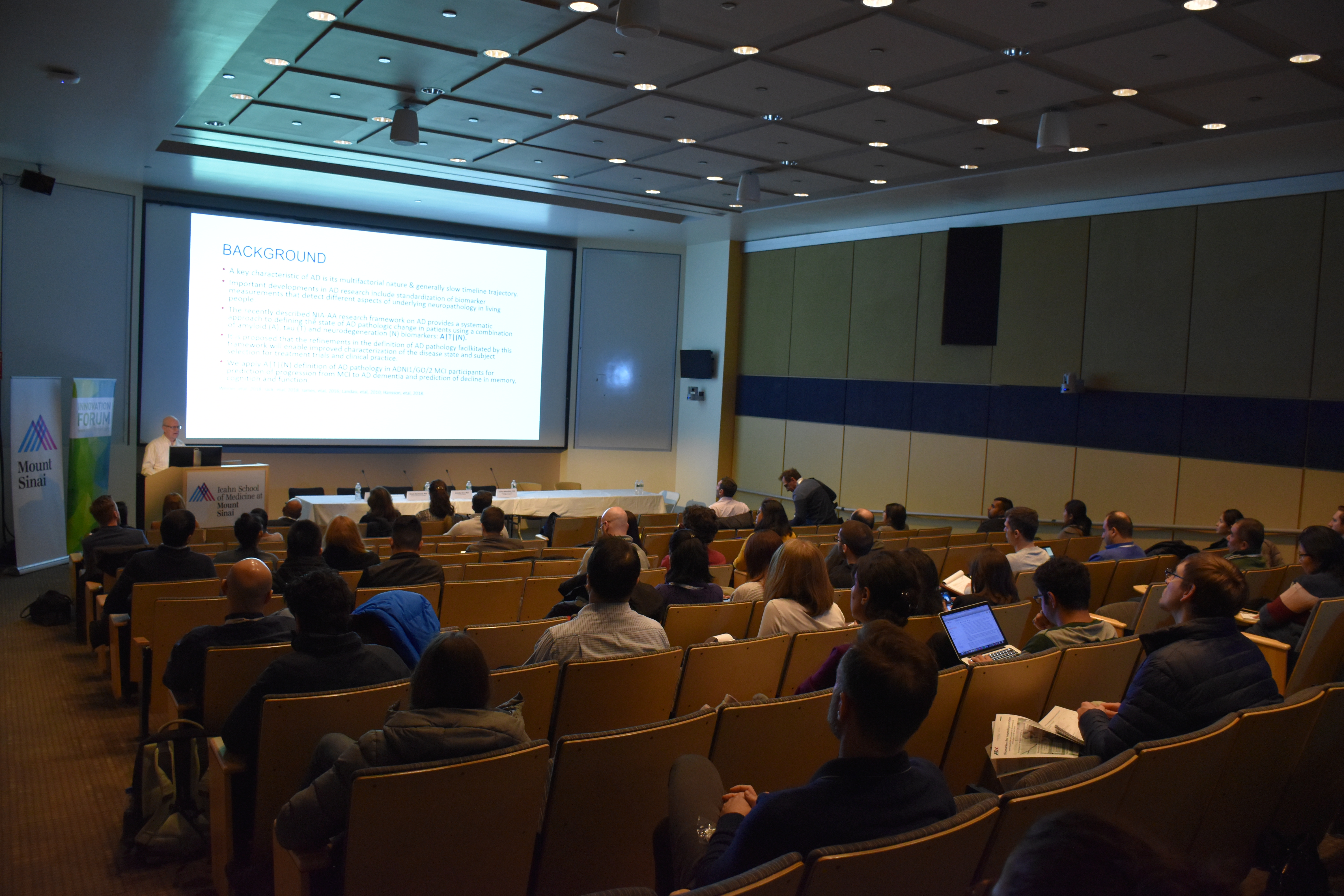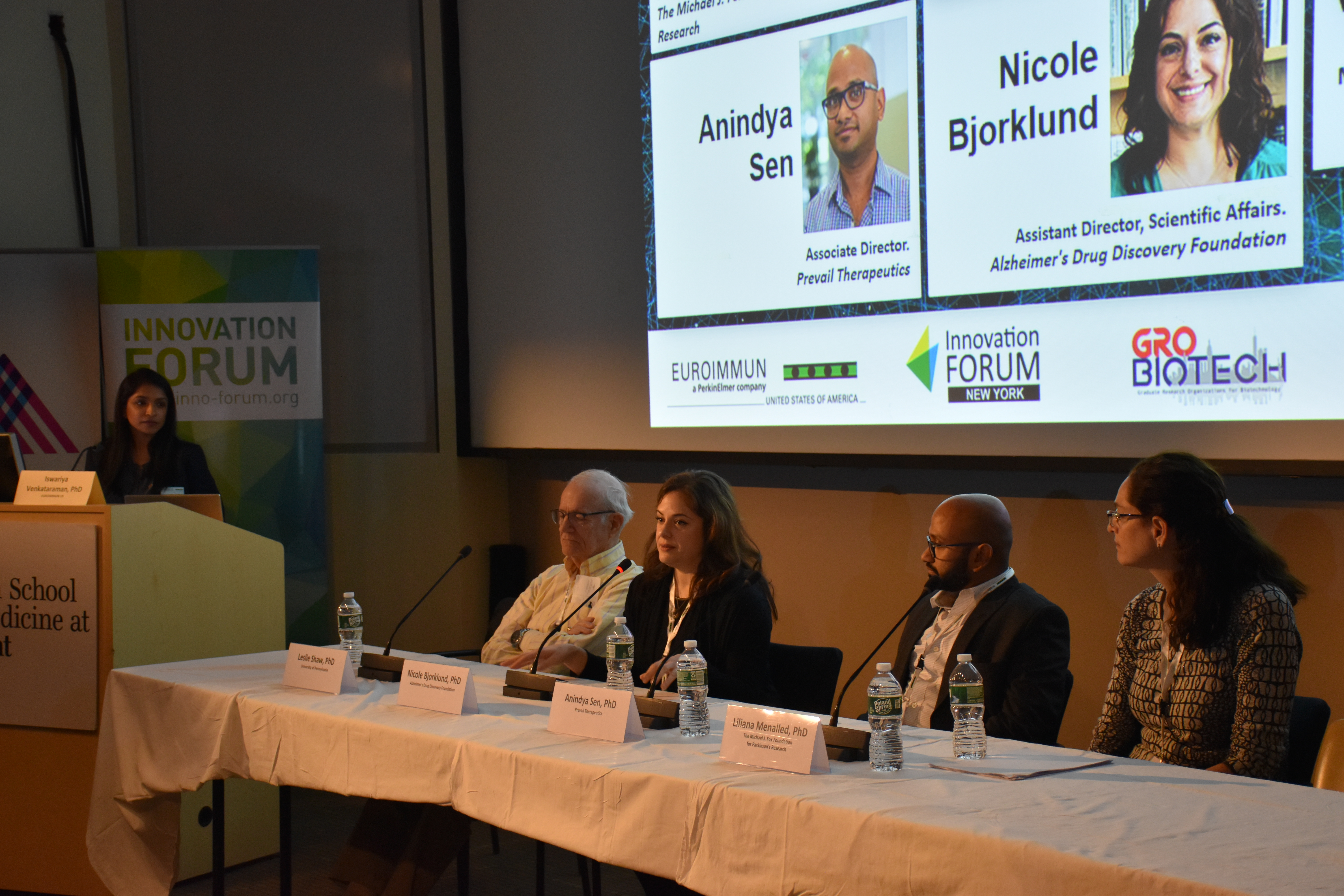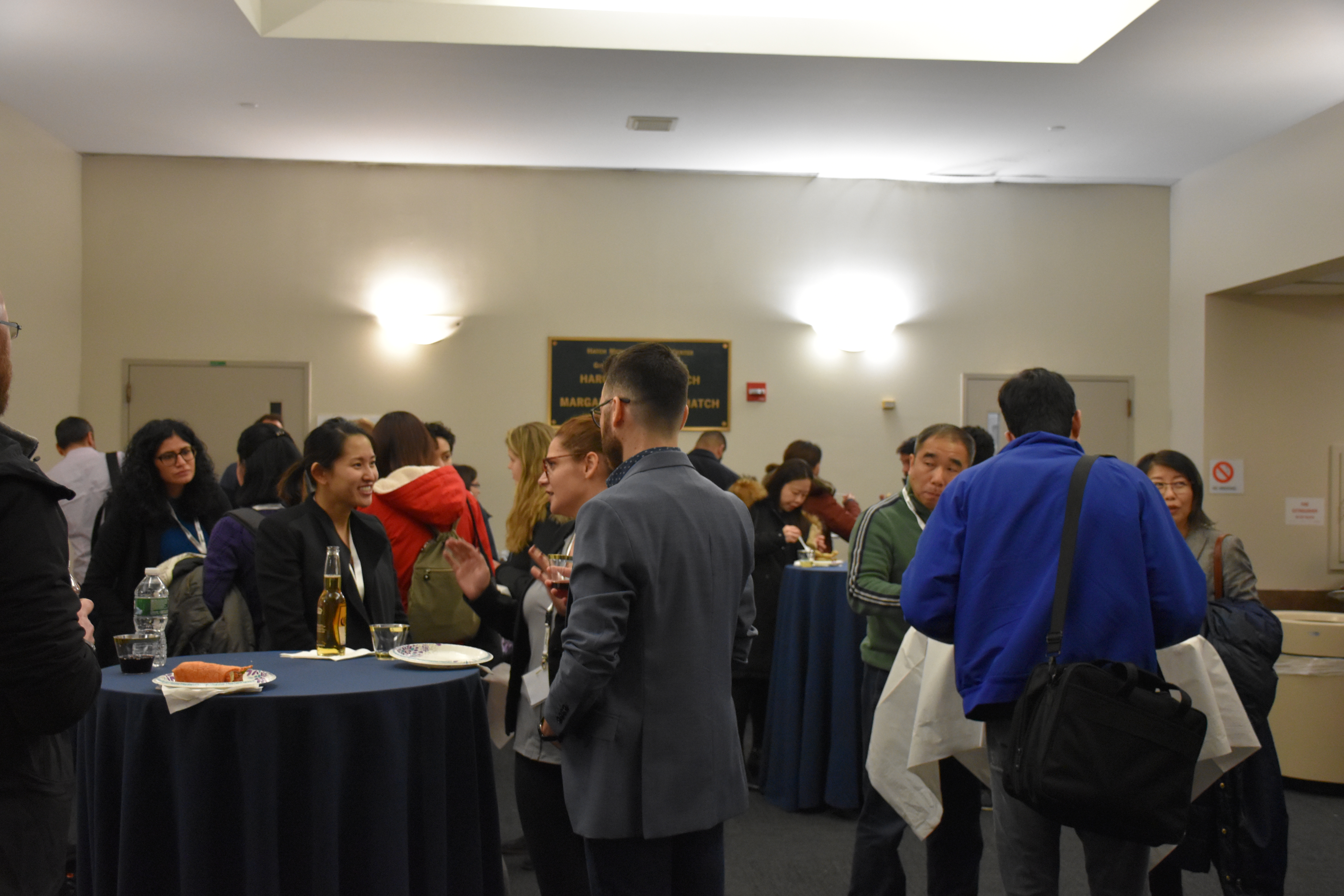Branch
Select your branch
IFNY Event Recap: Challenges and Opportunities in Neurodegenerative Diseases
On January 30th,, 2020, the Innovation Forum New York in collaboration with GRO Biotech, and sponsored by EUROIMMUN US, organized a panel discussion on, “challenges and opportunities in neurodegenerative diseases: perspectives from academia, entrepreneurs and non-profits.” The discussion, followed by a networking session, promised to be an incredible opportunity to better understand the current situation and future direction of neurodegenerative disorders, diagnosis and treatment, and more than delivered.
The event was opened by Marek Drozdz, President of Innovation Forum New York. He highlighted the significance of bringing people together to discuss important topics, which is the mission of our organization. Marek also announced that the Innovation Forum’s start-up accelerator IMAGINE IF! is open for registration and the deadline to apply is April 15th, 2020. You can find more information about IMAGINE IF! on our website or by directly contacting our Operations Manager Dr. Lander Egana-Gorrono.
Moderating the panel, we were fortunate enough to have the invaluable presence of Dr. Iswariya Venkataraman, Business Development Associate at Innovation Forum New York, and Market Development Manager at EUROIMMUN US. EUROIMMUN US, Inc. is one of the 14 EUROIMMUN subsidiaries, a world leader in the field of medical diagnostics. EUROIMMUN employs more than 3000 people worldwide with 200 PhDs among them. They have a wide portfolio, but possess significant expertise in the field of neurosciences, developing important tools such as their chemiluminescence RA Analyzer 10.

The first speaker on the panel was Dr. Leslie Shaw, a reputed researcher and Director of the Biomarker Research Laboratory at the Perelman School of Medicine, University of Pennsylvania. Dr. Shaw talked about the A/T/N framework, in which major Alzheimer biomarkers are divided into 3 binary categories. “A” refers to the value of a β-amyloid biomarker, “T” the value of a tau biomarker and “N”, biomarkers of neurodegeneration or neuronal injury. He insisted on the need for defining and standardizing biomarkers and guided the audience through the most promising candidate for each category.
The second speaker, Dr. Nicole Bjorklund, Assistant Director on Scientific Affairs at the Alzheimer’s Drug Discovery Foundation, emphasized the socio-economical cost Alzheimer’s disease has in our society and how with aging populations this problem will multiply in the future. She also guided us through the fantastic work they do on the Diagnostics Accelerator Initiative and its venture philanthropy model, that allows flexibility and fills the gap between basic science and clinical trials. One of their main goals is to develop non-invasive tests in order to develop diagnostics for Alzheimer’s disease and with that goal they have funded 14 biomarker programs that could lead to improved monitoring of disease progression, better response to new drugs and a better selection of patients for clinical trials.

Dr. Anindya Sen, Associate Director of Prevail Therapeutics, introduced us to the possibilities that gene therapy has to offer to treat neurodegenerative diseases. His work is focused on generating systems that would be able to deliver missing genes or knock out overexpressed cells genes to treat spinal muscle atrophy, a pathology that lacked therapy until very recently. Dr. Sen explained the advantages of gene therapies as opposed to more traditional therapies, which among others involve just one time dosing. He also told us about his personal journey transitioning from an academic setting to the industry where he now leads the gene therapy-based pipeline of Prevail Therapeutics for neurodegenerative diseases.
Last but not least, Dr. Liliana Menalled, Senior Associate Director on the Research Programs at The Michael J. Fox Foundation for Parkinson’s Research, introduced their Foundation’s goal, which is to facilitate and foster collaboration between different groups in the field. Although they do not have their own lab, they collaborate with a multitude of clinical centers to collect data or samples and then make them available to the research community. This work will generate a robust data set that will allow them to identify biomarkers and diagnostics to measure the onset and progression of the disease, ultimately leading to better treatments. The foundation has several programs to fund new therapeutics which have led to the treatment of pathology and its symptoms, and have reached multiple stage clinical trials, but have also led to the development of tools and resources that enable scientific discoveries.

These presentations were followed by an intense panel discussion in which the audience debated hot topics such as the current challenges in the field, personalized medicine and the role artificial intelligence might have in the following years.
This event made it clear that there is still a vast amount of work to do in the field, especially in identifying and validating new biomarkers and diagnostics, and although this represents a huge challenge for the industry, it also highlighted the incredible opportunities available.


